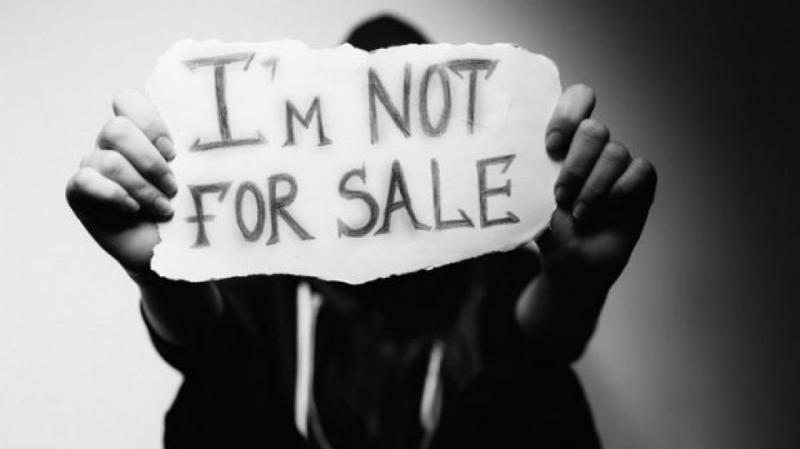Today, 30 July, marks World Day against Trafficking in Persons. Originating in 2013, various organisation across the globe will be intensifying their campaigns to highlight modern-day slavery and human trafficking.
Human trafficking refers to the buying and selling of people for the purposes of exploitation. This includes sex work, forced or bonded labour, involuntary domestic enslavement, child soldiers or organ trafficking. The theme for World Day Against Trafficking in Persons 2019 is: “Human Trafficking: Call Your Government To Action”. Trafficking still takes place regularly, despite national trafficking laws being implemented in 179 different countries, including South Africa.
These laws are in line with the UN Trafficking in Persons Protocol, which aim to: prevent and combat trafficking in persons, paying particular attention to women and children; to protect and assist the victims of such trafficking, with full respect for their human rights; and to promote cooperation among States Parties in order to meet those objectives.
The United Nations Office on Drugs and Crime has focused on highlighting the importance of Government action in the interest of victims of trafficking.
There are a number of organisations set up around the world to help increase awareness. Member of Non-profit Organisation A21, Cheyenne Daniels, explained to VOC what their organisation is all about.
“A21 is an international anti-human trafficking non-profit organisation. We reach the vulnerable through raising awareness and we rescue victims of trafficking and restore survivors and equip them to live independently. A21 is operating for over 10 years now and our offices in South Africa has been operational since 2012. We operate in 14 locations across the globe and each one of our offices are unique in its operations.”
She added that the instigators of trafficking usually target the vulnerable.
“Very shortly put, human trafficking is the illegal trade of people- it’s modern-day slavery. So, people are being recruited for their body or for their labour through forceful coercion. We often see it happening through a job offer that’s too good to be true; (we see) traffickers are luring their victims through false job opportunities.”
“The majority of victims have one thing in common and that is vulnerability. Someone can be vulnerable because they’re in desperate need for a job opportunity, or because they’re looking for a relationship or an exciting adventure.”
The spokesperson said that trafficking affects every country – including South Africa.
“As of 2016, it was estimated that there were over 40 million people in trafficking situations all; over the globe. The global slavery index is a study on modern day slavery, they estimated that there are 155 000 people living in trafficking situations in South Africa.”
A21 launched their hotline at the end of 2016 and has received over 17 000 calls and assisted in 114 rescues.
“This year alone, we’ve assisted on 18 rescues and we’ve had calls from all provinces. A large majority of calls to our hotline are from Gauteng and the Western cape due to very strong partnerships in those provinces, so we are seeing a large number of rescues coming from those provinces.”
Global efforts to combat the scourge has seen organisations partner with the different spheres of government.
“We work very closely with a number of partner organisations. We work with law enforcement, government workers and community members who are spreading our numbers.”
According to their website, the purpose of the hashtag “Can You See Me”; is to equip the general public to recognize indicators of human trafficking, and report suspected scenarios. An increase in reports will lead to an increase in victim identification.
“Can you See me is simply a direct call to action. Its designed in a way that the visuals and graphics depict the reality that we were seeing in South Africa. It aims to make the invisible visible by providing the public with tools on how to report suspicions or situations they find to be suspicious.”
Daniels identified the following people as those who are at potential risk of being trafficked, those who:
- are uneducated,
- unemployed,
- living in poverty/have a poor quality of life,
- living in unstable social and political conditions,
- addicted to alcohol or substances,
- illegal immigrants,
- children.
The Western Cape MEC for Safety, Albert Fritz, warned that there is a low risk of being found.
“South Africa, and in particular the Western Cape, is a source, transit, and destination for men, women, and children subjected to forced labour and sex trafficking. Of those who are taken, it is estimated that less than 2% are ever found,” said Fritz.
Daniels appealed to the public to be aware and report any suspicions.
“We’ve (seen) 65% of our calls coming from community members, so as individuals we are the best at spotting the unusual in every day. We really believe that the more people who start reporting suspicious situations, more victims will be identified.”
HOTLINE NUMBER: 0800 222 777






 WhatsApp us
WhatsApp us 

